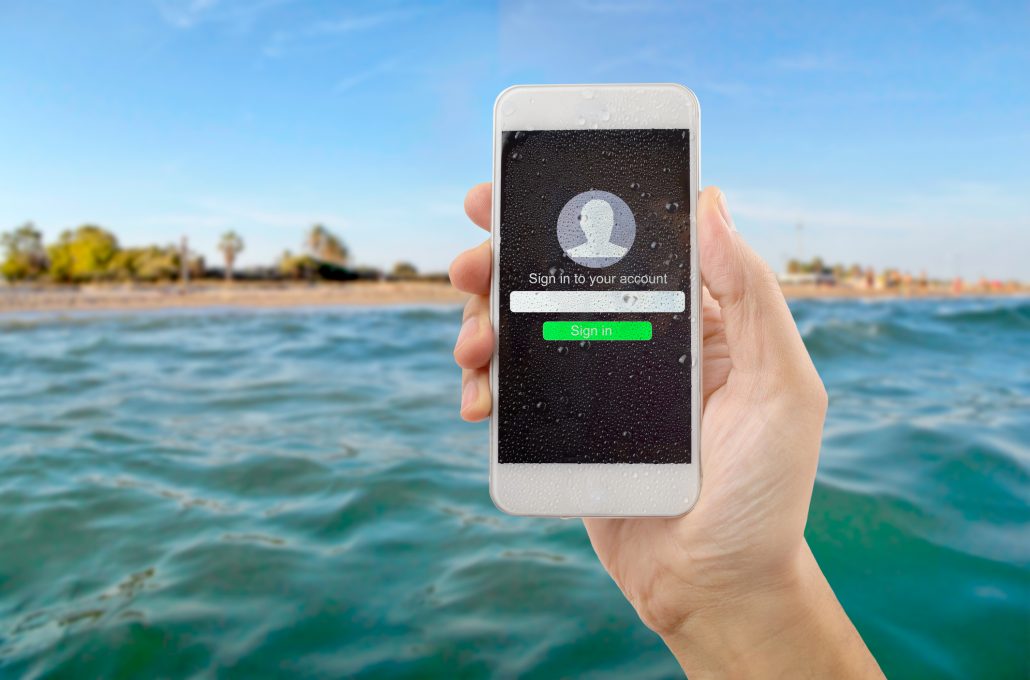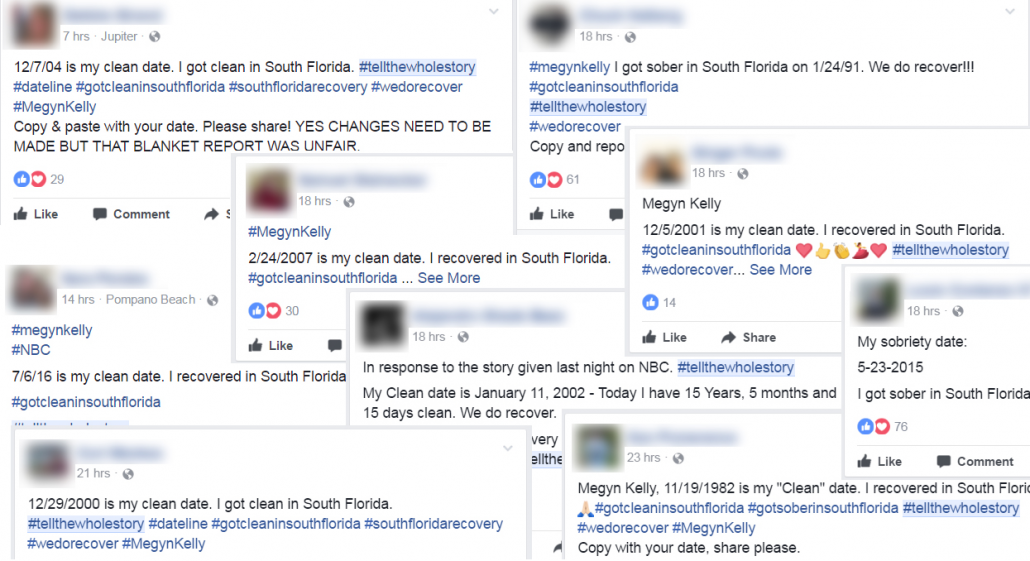by Justin Mckibben | Sep 1, 2017 | Coping Skills, Family, Inpatient Treatment, Recovery, Self Improvement

The devastating path of Hurricane Harvey has caused unprecedented and catastrophic flooding throughout southeastern parts of Texas. The Lone Star State has been all over the news since the tropical cyclone touched down, becoming the first major hurricane to make landfall on American soil since Wilma in 2005.
Some areas received over 40 inches of rain in a 4 day period, with peak accumulations reaching as high as 51.88 inches. The flooding and damage from the storm has besieged hundreds of thousands of Texan homes, displacing over 30,000 people.
Since its initial landing in Rockport, Texas there are reports of at least 46 confirmed deaths.
Sadly, the tragedy is not yet over. As efforts continue to pour in to relieve the suffering communities, Brock Long calls Hurricane Harvey the worst disaster in Texas history. Long says the expectation of recovering from this destructive natural disaster will take many years.
Still, there is hope. Houston Mayor Sylvester Turner is telling the world that they are happily on the road to recovery. Turner states:
“We’ve turned a corner,”
Yesterday the Mayor also noted there are already numerous signs of hopeful progress, including:
- Declining shelter numbers
- Power restored to most of the region
- The Astros’ doubleheader on Saturday
- More Metro bus lines resume service Friday
- Shipping channel reopening on limited basis
Leave it to the state where they do everything bigger to have such an inspiring bounce back after facing such difficulties. Our thoughts and prayers are with everyone where the motto is friendship and the country is uniting to help those in need.
As the nation pulls together during a time of crisis, so too must an individual pull their own personal resources into maintaining their mental, emotional and physical well-being in the face of disaster. So to add more to the conversation, we want to talk about 5 ways to stay sober during a natural disaster.
The news of another possible threat in the form of Hurricane Irma has been worrying many communities, while there has yet to be a definite answer as to whether or not it will make landfall in the United States, and if so- where.
So let us talk about something that is important for those in the recovery community to keep in mind.
Trauma and Relapse
We want to point out that because natural disasters can be traumatizing experiences, they can put some who are struggling to overcome addiction in a more compromised position. These events stir up anxieties concerns important parts of life, like:
- Personal security
- Physical health
- Relationships
- Psychological well-being
Even healthy people with no history of substance use disorder are frequently traumatized by these sudden and uncontrollable events.
Therefore, it only makes sense that some who are unequipped with healthier coping mechanisms will often turn to trying to escape these fears with drugs or alcohol. It is their natural defense.
Some may find that the traumatic event itself does not inspire cravings, but the aftermath is far more influential. Survivors of natural disasters may be more vulnerable to relapse as they struggle to cope with what has happened.
5 Ways to Stay Sober During a Natural Disaster
-
Have a network
One way that people are able to stay sober during a natural disaster is that they have a strong network of reliable friends, other individuals in recovery and even sometimes counselors they can stay in contact with. Keep your A-team on speed dial and stay in touch with them, even when the disaster is over.
-
Keep honest
This is pretty much always crucial, but we should emphasize it because too many people will overlook it when it matters the most. Stay honest with those around you about your emotions and how the disaster has affected you, especially when you are feeling like you are in a bad place.
-
Maintain a routine
Having a routine, even in the face of tremendous difficulties, can help you to retain some semblance of normalcy while dealing with a tragedy. When trying to stay sober during a natural disaster you may find comfort and coping skills in the simple things like taking care of your hygiene, exercising or even meditating. Have a healthy routine to fall back on when the dust settles.
-
Help others
Helping others is already a huge part of continued sobriety for a lot of people. Many recovery programs promote a life-style that suggests helping others and being of service. Do what you can to be there for those around you, and your community. However, always remember to take care of yourself as well. Don’t push yourself too far and avoid putting yourself in danger.
-
Find a support group
While support groups already exist for those in recovery, sometimes they are especially useful with trying to stay sober during a natural disaster. Don’t rush out in the midst of something dangerous trying to get to a meeting, but immediately after the traumatic events seek out a support group or some form of counseling to help you process the tragedy. Even if you don’t feel specifically vulnerable at the time, it is healthy and productive to try and connect with others in a time of crisis.
In fact, if not for you… do it for them.
There is often no way to predict how something so damaging will show up in your life and what it may do to you physically, mentally or emotionally. Yet, having an effective strategy in place might help you be ready for anything.
Do everything you can to make sure that you stay sober during a natural disaster, so that one tragedy doesn’t create another in your life.
Stay safe everyone!
In the face of great adversity and turmoil we are gifted the opportunity to be better than our anxieties and our traumas. Staying sober during a natural disaster may not seem as important as just staying alive, but for some of us it is essentially the same. If you or someone you love is struggling with substance abuse or addiction, please call toll-free now. We want to help. You are not alone.
CALL NOW 1-888-922-5398
by Sher Delva | Jul 27, 2017 | Addiction, Addiction Medicine, Addiction Stigma, Stigma, Therapy, Withdrawal

(This content is being used for illustrative purposes only; any person depicted in the content is a model)
Barbara Harris believes drug addicts should not have children, and she’s using cash incentives to ensure they never do.
For the last 20 years, Harris has driven across the country in a branded RV advertising her non-profit to drug addicts and alcoholics.
Her mission? To reduce the number of children born addicted to drugs and alcohol.
Her nonprofit, Project Prevention, pays substance abusers up to $300 to get sterilized or put on long term birth control like an implant or IUD. Those who get sterilized receive a lump sum and those who opt for less permanent birth control options get their payments in smaller installments.
To date, Harris’s organization has paid more than 7,000 people, mostly women, to give up their fertility. Project Prevention only pays the addicts and leaves the sterilizations and birth control procedures to doctors.
Harris believes the cash incentive is stopping a major societal problem in its tracks:
“We’re preventing women who are strung out on drugs and alcohol from conceiving a child,” Harris says. “Nobody has a right to force-feed any child drugs and then deliver a child that may die or may have lifelong illnesses.”
Drug and alcohol use during pregnancy can result in a host of medical complications. The use of heroin and narcotic painkillers like OxyContin, Vicodin, or morphine can cause bleeding within the brain (intracranial hemorrhage) and even infant death.
Neonatal Abstinence Syndrome (NAS) is defined as: “a group of problems that occur in a newborn who was exposed to addictive illegal or prescription drugs while in the mother’s womb,” according to Medscape.
- Every 25 minutes, a baby is born suffering from extreme withdrawal symptoms from the heroin, painkillers, or cocaine their mothers continued using throughout pregnancy.
- The numbers of babies born addicted to drugs have quadrupled between 2004 and 2013.
- In 2013, 27 babies out of every 1000 were born dependent on narcotics.
- These babies suffer from withdrawal symptoms like irritability, convulsions, sleep abnormalities and joint stiffness.
- Often, these babies must be sent to intensive care units where doctors help wean them off the drugs.
- It is taking longer to wean addicted babies off drugs such as heroin and mephedrone. On average, babies now spend their first 19 days – up from 13 days – in the Neonatal Intensive Care Unit.
- In 2015, the average overall cost of a newborn suffering from NAS was found to be between $159,000 and $238,000, and these numbers are expected to continue to rise.
In terms of alcohol consumption during pregnancy, fetal alcohol syndrome is another tragic outcome. Fetal alcohol syndrome can seriously harm the development of a baby during pregnancy, both mentally and physically. These effects can last throughout a child’s life.
FAS harms a baby in many ways including:
- Birth defects
- Vision or hearing problems
- Low birth weight
- Learning disabilities
- Speech and language delays
- Behavioral problems
- Growth deficiency
- Death
Some say Harris’s Organization Raises SERIOUS Ethical Questions
Harris’s mission to reduce these pregnancies seems straightforward. However, many feel her organization raises serious ethical questions. One question posed is whether she is taking advantage of addicts during their most vulnerable time.
A major critic of Project Prevention is Lynn Paltrow, Executive Director of National Advocates for Pregnant Women. She’s been a critic of Harris’s work for over 20 years.
“Barbara Harris greatest impact is in perpetuating really destructive and cruel myths about pregnant women and their children,” Paltrow says.
Paltrow believes Harris’s organization does more harm than good and does not address the underlying problems of poverty, lack of access to healthcare and stress created by racism have on these women. Instead, she feels Harris’s organization does nothing more but promote stigma.
“When you talk to the medical researchers, the great news is that none of the criminalized drugs cause unique permanent terrible damage,” Paltrow says. “Three percent of all women give birth to babies that have what are called serious birth defects. None of that has anything to do with the criminalized drugs.”
Another strong critic featured is Mary Barr, a former addict who believes what Harris is doing is wrong. Barr has two children who were born healthy despite her drug use.
“I have two children who are incredibly healthy, were born healthy, they’re 26 and 25, and they’re very amazingly successful,” she says.
When asked if she would have taken up on Harris’s offer at the height of her addiction, she says she would have.
“I would have taken it because $300 all at once, that means for me, three nights of sleeping indoors,” she says referring to her predicament back then.
Is Project Prevention Denying Addicts a Second Chance?
Despite the controversy, Harris believes what her organization is doing is the right thing for the children. She does not believe she is promoting sterilization. Instead, she says what she offers is a choice.
“We don’t promote sterilization, that’s their choice. They got strung out; they decided they wanted $300 to sterilize themselves, and if it’s a decision they regret, it was a decision they made just like prostituting and ending up with AIDS,” she says.
One of the reasons Harris is so passionate about this is because she adopted and raised four children from the same mother who used drugs throughout her pregnancy. She wants to prevent other children from being born in the same situation.
“I watched how my children suffered and had to withdraw from drugs when they were born so no, I wasn’t thinking about ‘These poor women,’ I was thinking ‘My poor children,’” she says.
“I always say to them if you believe that strongly that these women should keep conceiving children then you should step up and adopt the next one born, but most of the people who have a problem with what we’re doing would never consider adopting one of these children, so if you’re not part of the solution, you’re part of the problem,” she concludes
Overall, like most harm reduction programs, this solution is controversial. There are many addicts who have recovered and gone on to have and raise children. Sadly, there are children born every day addicted to drugs and alcohol, and the consequences are real. Harris’s organization receives over $500,000 in funding every year. Clearly, there are many on her side when it comes to providing this option.
What are your thoughts? Does a program like this promote stigma or offer a solution? Either way, please do not continue to let your addiction take over your life. You deserve the opportunity to live a healthy and satisfying life. If you or someone you love is struggling with substance abuse or mental illness, please call now 1-800-777-9588.
CALL NOW 1-888-922-5398
by Justin Mckibben | Jun 28, 2017 | Addiction Treatment, Alcohol Addiction, Inpatient Treatment, Internet, Social Media, Stigma

When news travels at the speed of social media there isn’t much of a waiting period for responses to issues that strike a nerve with people. As we were writing and publishing our first response to the story aired by the NBC News Investigation host Megyn Kelly, along with other media outlets such as The New York Times, a fire was catching that lit the internet up.
While we already wrote a response to the Megyn Kelly piece, we wanted to also highlight the amazing response from the recovery community!
The Megyn Kelly story was focused on exposing the fraud and corruption that has infiltrated the addiction treatment industry in South Florida, utilizing interviews with local law enforcement, first responders, politicians and victims of patient brokering and illegitimate sober homes. While it may have been an eye-opener to some in other states, this wasn’t news to the population of South Florida. These tragedies and indiscretions have been talked about for years now. The topic is still causing contention and debate within the community.
However, when the piece aired just this past weekend, many of South Florida’s recovery community set aside much of the debate to answer what was being said.
South Florida Recovery on Social Media
Facebook turned into a major platform yesterday as new hashtags went viral, including:
- #Igotcleaninsouthflorida
- #tellthewholestory
- #southfloridarecovery
- #wedorecover
A huge number of these posts were attached to personal stories of suffering, recovery and astounding accomplishments. Others were attached to photos. Many posts demanding that the media acknowledge the voice of the actual people in the South Florida recovery community. Most of the posts included people sharing their sobriety dates (meaning the day they finally stop drinking or using drugs).

Photo: Facebook posts responding to Megyn Kelly
There is a clear message here- the South Florida recovery community is strong and willing to take a stand.
This profound and inspiring response has been completely organic. One after another people from many areas, especially Delray Beach, started sharing their experience with treatment and recovery in South Florida. Megyn Kelly was tagged in these posts, so surely her social media team got pretty busy sifting through all those notifications.
Some were from people with several months clean and sober, other posts were people with a couple decades of recovery time. There were those who came to Megyn Kelly’s defense, while others took the whole thing as an opportunity to attack her… or the people responding to the story. Still, the presence of South Florida’s own population of people overcoming addiction was making a lot of waves.
The Megyn Kelly Conversation
One thing we should acknowledge about the piece on Megyn Kelly’s show… is it worked.
Granted the camera and narration do not paint the most flattering picture, but it revitalizes an important conversation- safeguarding the addiction treatment industry in South Florida. It worked because we can at least take something from it; the South Florida treatment industry needs to work together with community leaders, officials and people in recovery in the area to help make things better.
However, people in the recovery community did take offense to statements made by people during interviews that implied people were not coming to South Florida and getting better. It might not feel fair to a lot of people who thrive in South Florida’s recovery community that they felt marginalized or misrepresented. Some of the comments suggest that people sent to Florida are more likely to end up dead than they are to end up better, but there seems to be a lot of people with something to say about that.
After hearing the Megyn Kelly story the recovery community in South Florida chose to take the opportunity to stand up for one another. Overnight there was an up-welling of support for those who have come to South Florida, made a life for themselves after treatment and become active members of the community.
It’s About the People
More importantly, this is all about the people who have recovered and the people who are most desperate for it. We want people to know that there are unethical and illicit businesses in every state that exploit this same system, but there are world-class addiction treatment programs in South Florida that take great pride in being part of the solution, not the problem.
This is about the people who have changed their lives, acknowledging their strength, hope and adversities. It is about the people who want to believe that there is a safe place with people who care about improving themselves and each other. We have to let people know what to look for, how to ask the right questions and how to make educated decisions on how to best treat them or their loved ones.
For a more detailed look into the difference between addiction treatment programs and sober living facilities, download our FREE e-book:
5 Critical Mistakes When Picking a Treatment Center and How to Avoid Them
DOWNLOAD FREE E-BOOK
We are proud of how the recovery community of South Florida has responded to the Megyn Kelly story. Part of fixing the issues facing people with addiction is to strip away the stigma of substance use disorder, and a keystone to fixing the stigma is education and awareness. South Florida stood up and told the world #wedorecover because they know if we #tellthewholestory then the entire nation may see that addiction treatment is about healing and helping people together.
South Florida recovery set social media on fire a few nights ago… because South Florida recovery is full of absolutely amazing people too! Imagine if we did that all the time! Imagine if we took it upon ourselves to make this happen every chance we got! Who might get the help they need because of what we share?
My name is Justin Mckibben
My sobriety date is November 28th, 2013
#igotsoberinsouthflorida
Every recovery community has its faults, but the recovery community of South Florida is an amazing place to start your journey to change that could save your life. If you or someone you love is struggling, please call toll-free now.
CALL NOW 1-888-922-5398





